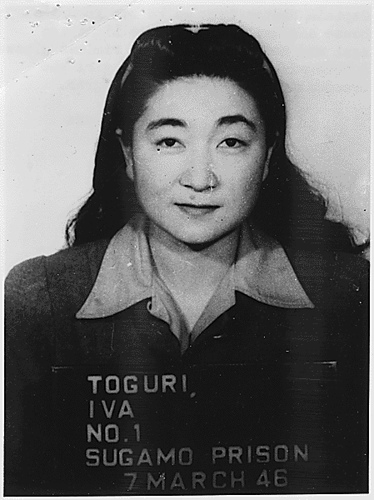


In the U.S., snack food manufacturers in recent years have become creative, and come up with a variety of flavor combinations beyond the old barbecue-flavor potato chips or the nacho cheese flavored Doritos. Now you can get black pepper and olive oil Triscuits, or chili-lime flavored corn chips. But American palates probably aren't ready for some of the flavors that are available in Japan.
I caught a cool video story today on NYT.com, about a Double Dutch competition held in Harlem. (You may have to do a search for it once you get to the NYT video page). Interestingly, the competitive African American tradition, which counts the number of times you can jump rope in two minutes and then add on layers of amazing acrobatic...
 Iva Toguri D'Aquino died Sept. 26, 2006 at age 90, in Chicago. You might not know her, or remember her today, but she was a victim of circumstance who was once one of the most hated women in the United States.
You might not know her, but you might know her nickname: Tokyo Rose.
Iva Toguri D'Aquino died Sept. 26, 2006 at age 90, in Chicago. You might not know her, or remember her today, but she was a victim of circumstance who was once one of the most hated women in the United States.
You might not know her, but you might know her nickname: Tokyo Rose.
 I finally saw Peter Jackson's 2005 remake of "King Kong," and I'm afraid I was underwhelmed. It was corny, and overly long and not engaging, even when the excitement factor revved up for the final third of the film. It reminded me that although Hollywood has been making monster movies since the original 1933 "King Kong," the monster with the most staying power and screen incarnations -- over two dozen movies -- didn't come out of California, but from Tokyo.
I finally saw Peter Jackson's 2005 remake of "King Kong," and I'm afraid I was underwhelmed. It was corny, and overly long and not engaging, even when the excitement factor revved up for the final third of the film. It reminded me that although Hollywood has been making monster movies since the original 1933 "King Kong," the monster with the most staying power and screen incarnations -- over two dozen movies -- didn't come out of California, but from Tokyo.

This website uses cookies to improve your experience. We\'ll assume you\'re ok with this, but you can opt-out if you wish. Read More


